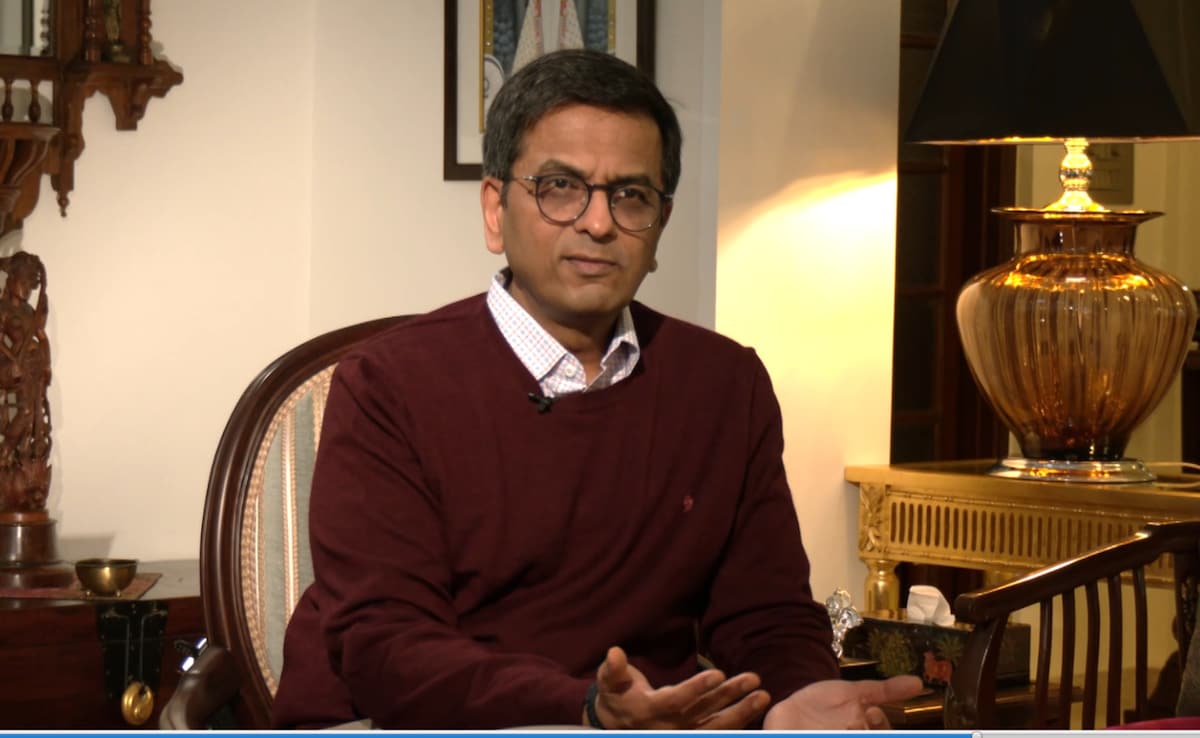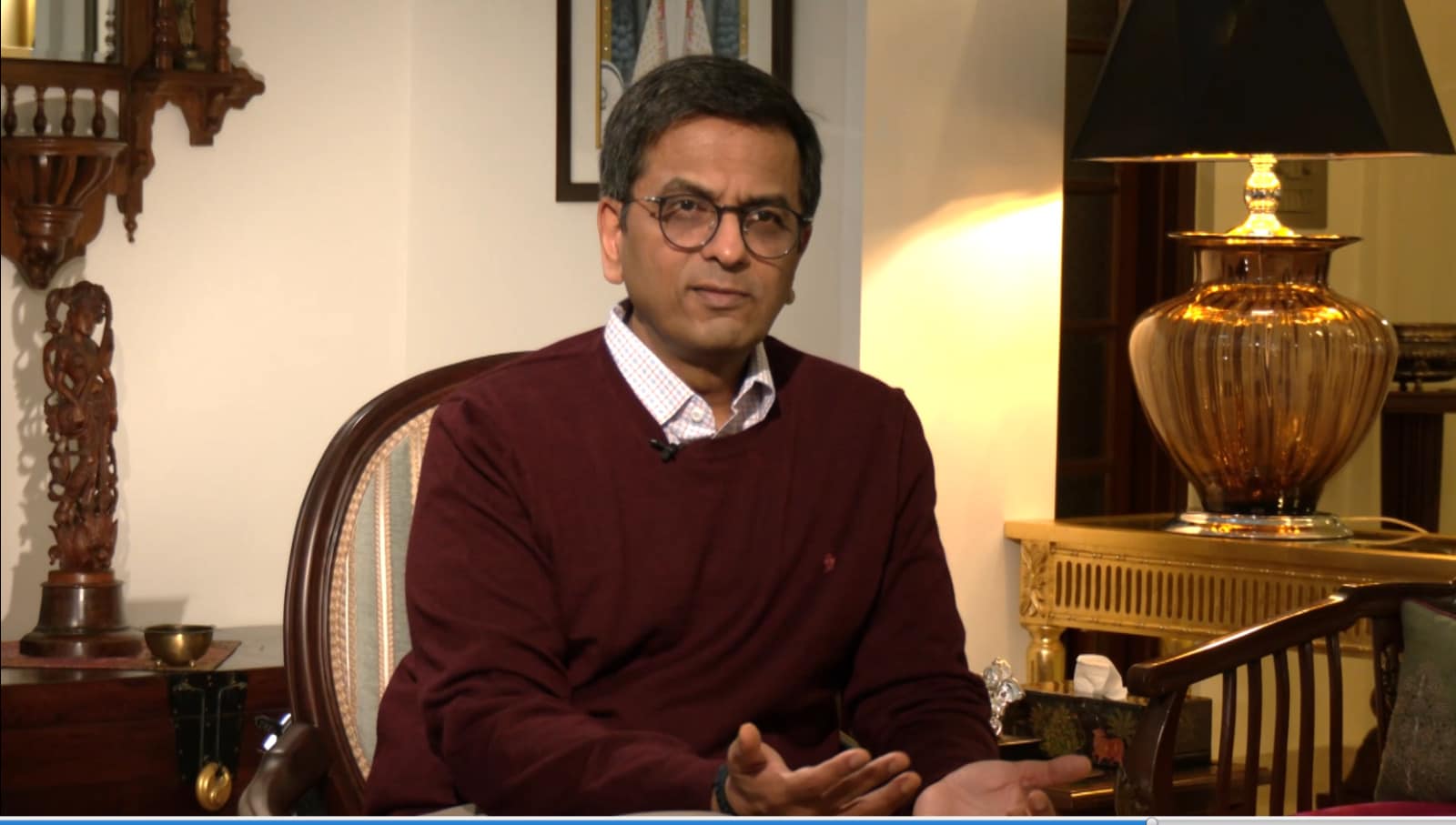

New Delhi:
For former Chief Justice DY Chandrachud, law was not the first choice and he almost pursued a post-graduate degree in Economics instead.
In an exclusive interview with NDTV on Wednesday, Justice Chandrachud shared several details about what shaped him as a lawyer and a judge and spoke about the influences in his life, including his father and former Chief Justice of India YV Chandrachud.
“Law was not my first choice, to be very honest. I graduated from St Stephen’s College in Economics and Mathematics. And, after I completed my BA, my first choice was actually to pursue a Post-Graduation in Economics at the Delhi School of Economics. But, as destiny would have it, I joined the law faculty and then there was no going back. My father, of course, was a very important source of influence on my life, not just in terms of the law, but in terms of learning basic values, the ethical values, which are associated with life. That generation of judges and lawyers was very strong in their foundational principles,” the former Chief Justice said.
Justice Chandrachud said his father let him choose his own career path and set an example by making time for his family and never imposing his view on them. In their later years, he said, his father was more of a friend to him.
“And when the call of higher judicial office came to me – I was asked to become a judge when I was just 38 years old – and my appointment was not coming through for two years, I thought, well, it’s time to get on with the law and be a lawyer for the rest of my life. And when I looked at him (my father) for advice, he said, do as you please, and I’ll support you in whatever you do. Perhaps, he said, you will do equally satisfying work and fulfilling law work as a lawyer at the bar,” Justice Chandrachud said.
The former Chief Justice also said he had the good fortune of seeing some of the “greats of the bar” at work and also working with some of them. He said he learnt a lot from Fali Nariman, Soli Sorabjee and K Parasaran. He also praised former Solicitor General KK Venugopal.
Harvard Degree
Justice Chandrachud said he learnt a policy oriented approach to law at Harvard Law School and also got educated in policy as a student of Economics at Delhi University and at the Campus Law Centre in Delhi. Professor Lotika Sarkar, he said, gave students like him the “first groundings” in feminist jurisprudence when people were not talking about feminism in law in the 1980s.
The former Chief Justice spoke about how the Harvard Law degree did not have much of an impact immediately after he returned to practice.
“I realised this to my disappointment when I got my first brief as a young lawyer in the Bombay High Court. I had an SJD from Harvard Law School, which is a Doctorate in Juridical Science, and my first brief was a little docket to mention before a division bench of the Bombay High Court. I asked the solicitor: ‘How much do I mark on the docket, what is my fee?'” he recalled.
“Fees in Bombay in those days were marked in GMs, which is gold mohurs, and one GM was 15 rupees. So the solicitor looked at me and said, ‘You know, for this particular work, the ordinary fee would be five GMs, which would be 75 rupees. But since you are first appearing before the high court, I will give you six guineas for this case. So I realised that, notwithstanding a Harvard PhD, what I could mark in those days was about 75 rupees or 90 rupees in the mid-eighties,” he said.
“So, life teaches you so many good lessons, you know? And you realise that a good academic degree is important, but it is not everything in itself when you actually join the profession. But Harvard benefited me as time went on,” he added.
Humility
Speaking about what was one his most important judgments, the scrapping of electoral bonds as a means of political funding, Justice Chandrachud said a judge applies intellectual rigour and the basic principles of law to arrive at a verdict.
“For instance, when you decide a case like the electoral bonds case, when it opens, you are conscious of the ramifications of what you are deciding and you are conscious of the impact which the case will have on the polity in the long run – it is obviously something which is present to the mind of the court. But when you arere deciding the case in terms of intellectual rigour, you are applying the basic principles which are associated with that body of law. So, in the electoral bonds case, we were applying fundamental principles of manifest arbitrariness or the need for transparency in electoral funding,” he explained.
Justice Chandrachud said judges are conscious that what they are deciding now will impact society in the future.
“And that constantly reminds you, as a judge, to be humble. Humility is something you learn as a judge of the Supreme Court because you are conscious of the fact that the field of knowledge is so vast, and it’s far vaster than any of us as judges or lawyers can fathom,” he said.



